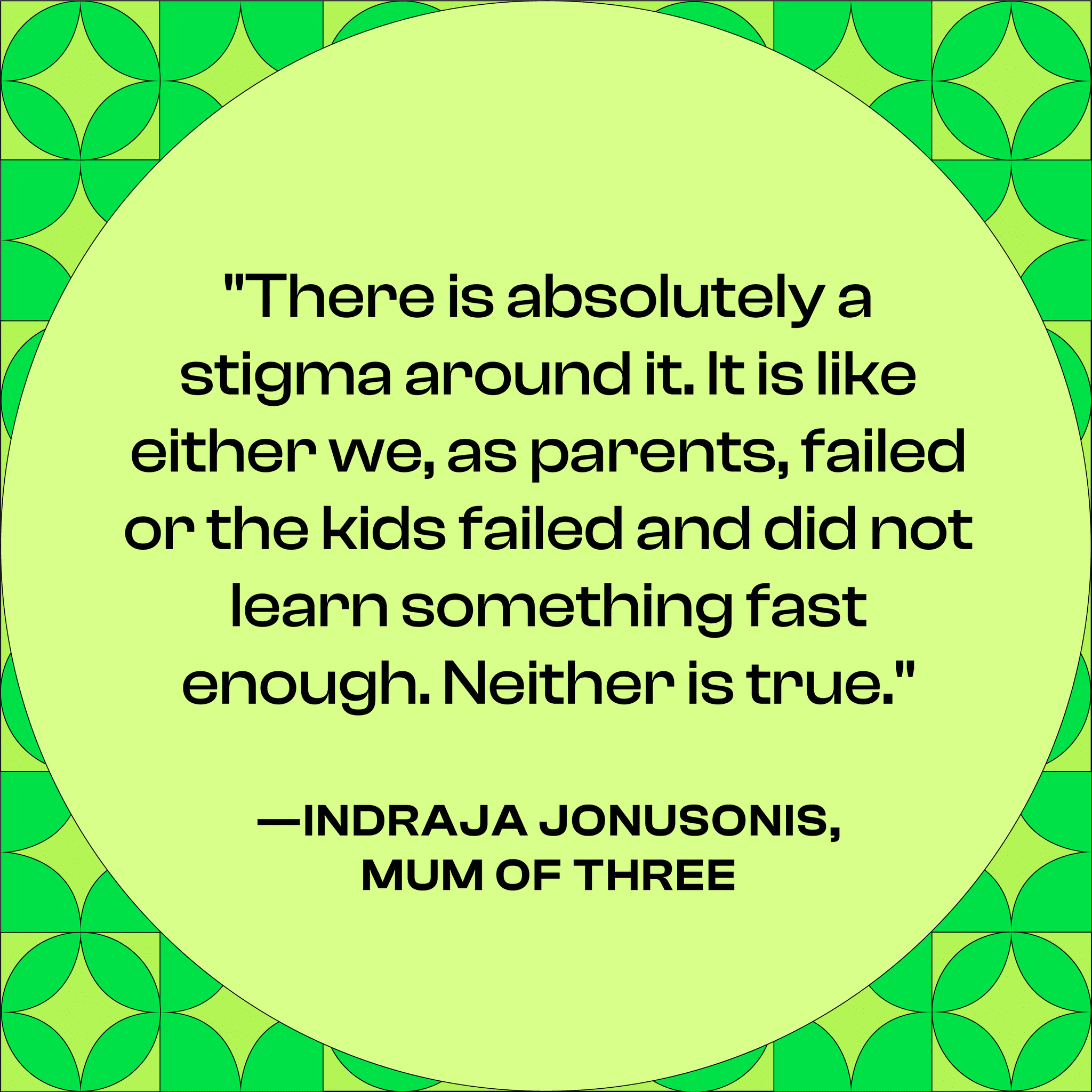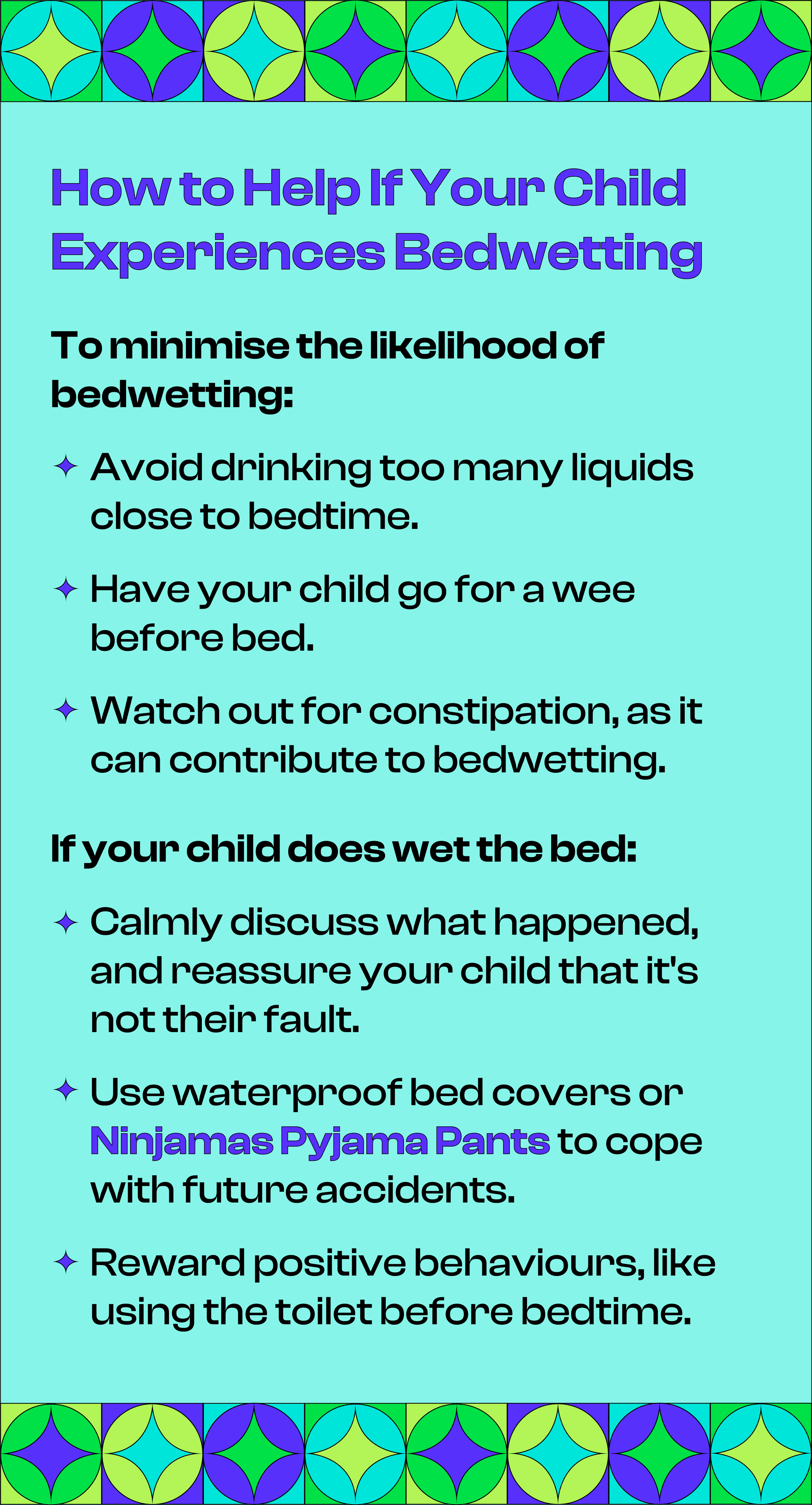
A Doctor's Tips For Helping Your Child Through Bedwetting
Attention Parents: Here's How to Help If Your Child Experiences Bedwetting

Like toilet training and tantrums, bedwetting can be one of many phases that parents will encounter in their children's lives. That's certainly been the case for mum of three Indraja Jonusonis: both her 12-year-old son, Dominykas, and her 3-and-a-half-year-old son, Motiejus, have experienced bedwetting.
Dominykas started bedwetting when he was 3-and-a-half years old. "I believe that bedwetting is a symptom of stress and a loss of control in childrens' lives, especially as they get older (besides actual medical issues, of course)," Jonusonis says. "Eventually, he grew out of it, but it took a lot of trial and error." More recently, Motiejus started bedwetting after starting preschool.
Jonusonis is far from the only parent to deal with bedwetting: pediatric emergency medicine specialist Dr. Ranj Singh says nearly 500,000 children between the ages of 5 and 16 in the UK are prone to bedwetting. "Bedwetting can happen for a number of different reasons, and it is always important to emphasise that it is nobody's fault," Dr. Singh says. "For most children, it happens at a young age, and most will outgrow it by the time they are 5 years old. However, it can persist into later life and even happen after a child has previously been dry at night, depending on the underlying cause."

There are a few common reasons for bedwetting, Dr. Singh says. Bedwetting can happen if children's bladders don't stretch enough to hold the wee they make at night, if they produce too much wee overnight, or if they don't wake up when their bladder sends a signal that it's full. Dr. Singh says that bedwetting can also be an indication of underlying medical problems such as urine infections, type 1 diabetes, or constipation — or it can be triggered by psychological stress or a major life event.
Some cases of bedwetting may need medical intervention. If your child has daytime wetting, if you’re struggling to manage your child’s bedwetting with simple measures at home, if your child suddenly starts to wet the bed after previously being dry for at least 6 months, if your child has any other symptoms alongside the bedwetting, or if you’re concerned they may have an underlying medical condition, seek further guidance from a healthcare professional.
Most importantly, Dr. Singh says parents shouldn't be afraid to speak openly about bedwetting. "There is so much shame and stigma around bedwetting that it can make people feel embarrassed and isolated — both child and parent," he says. In fact, a survey conducted by Ninjamas found that 79 percent of parents with children who wet the bed say there is a stigma or taboo around the subject, and over 85 percent wish people spoke more openly about it. "It's important to point out that it's more common than people think, and it's certainly no one's fault," Dr. Singh continues. "Also, by talking about it more, we can remove the stigma and start giving parents and children the support they need."
Jonusonis certainly felt the impact of it being a taboo subject when her oldest began bedwetting. "There is absolutely a stigma around it. It is like either we, as parents, failed or the kids failed and did not learn something fast enough. Neither is true," she says.

Dr. Singh also encourages parents to be as supportive and understanding as possible, in addition to trying a few lifestyle changes. Rather than waiting to drink a lot of water right before bedtime, Dr. Singh suggests making sure your child is staying hydrated throughout the day. Make sure they go to the toilet right before bed, and look out for any signs of constipation, as it can make bedwetting worse.
Taking precautions to prevent leaks can also help parents and children manage bedwetting, Dr. Singh explains. In addition to using a waterproof mattress cover, he suggests parents try Ninjamas Pyjama Pants. Designed for children between the ages of 4 and 12, these absorbent nighttime underwear offer up to 12 hours of discrete protection thanks to the 360-degree FormFit belt and instant-absorption technology. "They help to keep your child and their bed dry so that you don't have to worry about changing wet bed sheets in the middle of the night," he says.
Jonusonis also says Ninjamas can help alleviate the shame around bedwetting — something her children experienced personally. "This product can help with confidence building during a hard time for both children and parents. It can help reduce the amount of shame and laundry," she says. "It is especially helpful because it is geared towards older kids who know for sure that something is not right."
Lastly, Dr. Singh also recommends parents research bedwetting using trusted sources like the NHS and ERIC, the children's bladder and bowel charity. If at-home interventions aren't helping your child's bedwetting, if they start wetting the bed again after six months of dry nights, or if you suspect an underlying medical condition, contact your child's doctor for help.

Shop Ninjamas Pyjama Pants
Design: Marissa Dickson

